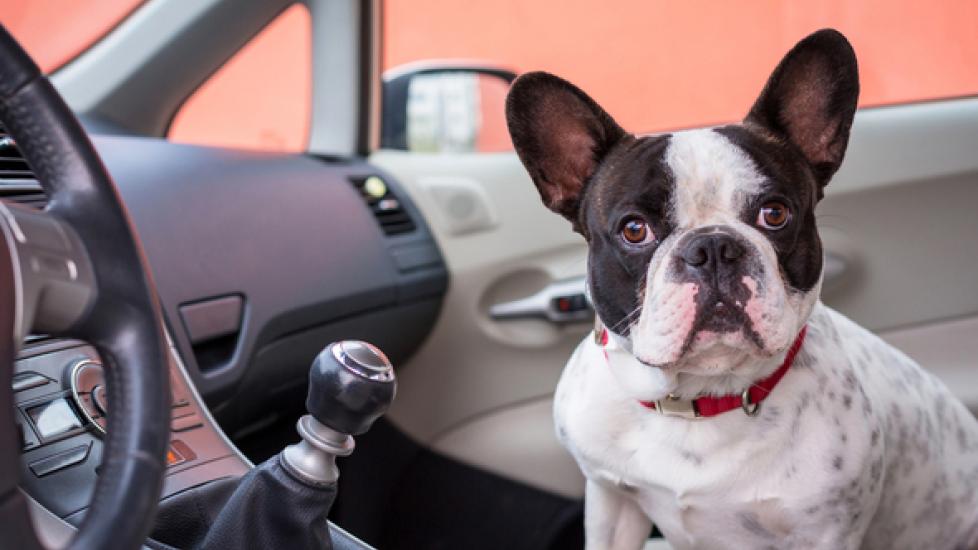How to Relieve Dog Travel Anxiety
One of the more popular American pastimes as the weather gets warmer is to go on a road trip. As more shops, hotels and outdoor cafes become pet-friendly, pets parents are more inclined to bring their furry sidekicks along for the ride.
If you are taking your dog on a fun-filled road trip, here are several things you can do to reduce dog car and travel anxiety to make pet travel easier.
Tips for How to Cure Dog Car Anxiety
If you want to help reduce your dog's travel anxiety, here are a few precautions you can take to help him stay calm.
Help Dogs Enjoy Their Pet Travel Carriers
For small to medium-size dogs, use a travel crate or small pet carrier for increased safety and security during the car ride. The dog carrier should be large enough so that your pet can lie down comfortably.
Before hitting the road, you should help your pet create a positive association with their travel crate. Through the use of tasty dog treats, we can teach our pets that the carrier is a wonderful spot for snack time or a peaceful place to rest.
Bring out the carrier as soon as you start planning your trip. Keep the door open and place a nice cozy bed or sleeping pad in the carrier. You can make a dog treat trail leading into the carrier, and place a jackpot of treats at the far end of the carrier. Mix up what you put in the carrier every day to keep them coming back to investigate.
Once your pet willingly goes into the carrier, offer them a long-lasting treat. Dog interactive toys will keep your pet engaged and entertained while you slowly close the carrier. Start with short periods of time with the door closed, and gradually build up to longer periods of time with the door closed.
Take Practice Trips to Ensure Your Pet Travels Well
You can help reduce dog car anxiety by taking short trips in the car while your pet is enjoying a tasty treat in the carrier. Open the window to allow fresh air and interesting smells to enter the car. Your pet’s comfort is paramount, so if they do not seem to be enjoying the breeze, it might be best to keep the air conditioning on and the windows closed.
Some pets may enjoy looking out the window, while the scenery may cause anxiety in others. If you provide your pet a view and he does not appear to show interest in looking out the window, then turn the carrier to face forward and cover your pet’s view with a towel. Always make sure they are getting enough airflow.
Try Using Dog Calming Products or Supplements
An anxious dog may respond well to pheromone dog calming products that use synthetic pheromones to help them feel safe and secure, like Adaptil for dogs.
Research has shown that some people and pets respond well to the smell of lavender. Lavender-infused cotton balls can be placed in a plastic bag. Once the bag is open, it will diffuse through the car. Do not apply the lavender oil directly onto your pet. Absorption of the lavender oil through the skin or ingesting the oil by licking the oil off their fur can be toxic to your pet.
Several studies have indicated that certain types of music, such as classical music and reggae can calm dog car anxiety. Some dogs also exhibited reduced signs of anxiety in response to listening to audiobooks.
Potty and Travel Breaks Are Important
While it may not allow you to reach your destination in the shortest time possible, taking frequent breaks may be helpful to reduce dog car anxiety.
It is also best to avoid taking long winding roads at breakneck speeds to reduce the possibility of inducing nausea in your pet.
If your pet suffers from motion sickness, please talk to your veterinarian about anti-nausea medication they can prescribe. For pets with higher degree of travel anxiety, you can speak with your veterinarian about the use of anti-anxiety medication. If your pet truly is miserable during the car ride, you may need to reconsider your plans for traveling with dogs and leave your pet at home.
By: Dr. Wailani Sung
Featured Image: iStock.com/Mustang_79
